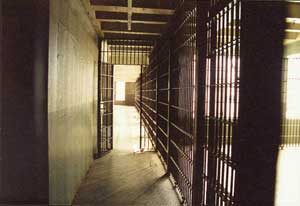Post Date: February 28, 2006
Members of Harvard Law School’s Prison Legal Assistance Project, a clinical program that represents state prisoners in a variety of proceedings, recently participated in rewriting Massachusetts law governing state prison discipline. Following a widely publicized scandal involving the death of a state prisoner in 2003, the state Department of Correction sought to overhaul its disciplinary regulations in the Code of Massachusetts Regulations. PLAP was invited to participate on the reform committee.
HLS student Scott Smith ’05 and supervising attorney John Fitzpatrick ’87 assisted in drafting a new set of regulations and attended numerous meetings throughout 2004. A public hearing was held on September 19, 2005 to solicit comments on the final draft of the regulations. The regulations were officially adopted by the state on January 30, 2006.
“Having the Department of Correction invite our participation during this vitally important stage of framing new disciplinary regulations was unusual,” said Fitzpatrick. “I think it is a compliment to the respect PLAP students have earned during their many years of advocacy on behalf of state prisoners. I am appreciative of the opportunity Correction Commissioner Kathleen Dennehy gave to PLAP and Northeastern to offer input during this process.”
While the new regulations do not include every single recommendation PLAP offered, they contain a number of innovative features, including the provision of “automatic discovery” of certain evidence before hearings are held, and allowances for disciplinary officials to continue certain disciplinary cases over a probationary period, with the case being dismissed if there is no further violation from the prisoner during probation.
Fitzpatrick also noted the positive impact PLAP’s role in drafting the new law has had with students.
“It reinforces the social relevance of what we do at the Law School,” he added. “Here’s a clinical program where students are making a significant and positive contribution to our society and where we have literally helped to rewrite a part of our state’s law for the better. This is in keeping with the very best of the Law School’s tradition of public service.”
